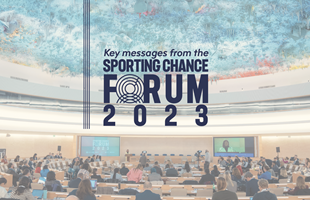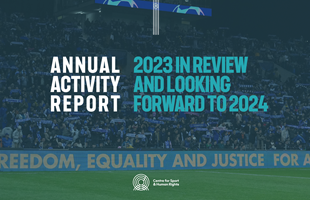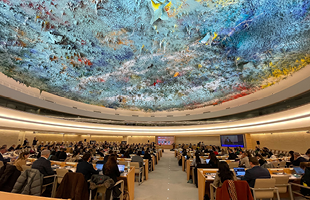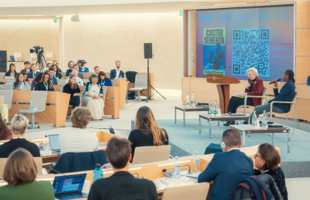Three Priorities for the Future of Sport
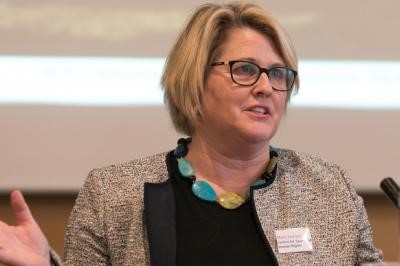
My first unofficial act for the Centre was attending and participating in the Sporting Chance Forum in December, hosted in Paris with UNESCO and the Institute for Human Rights and Business (IHRB).
The Forum was attended by over 300 senior representatives of governments, sports bodies, intergovernmental organisations, host actors, sponsors, broadcasters, civil society, trade unions, employers and their associations, and national human rights institutions, as well as many athletes.
Discussions spanned two days and a range of topics, including a special spotlight on survivors of sexual abuse, athletes’ rights, worker safety, fan monitoring, media freedom, children’s rights, and community wellbeing.
I closed the Forum with three reflections in particular.
Current structures in sport for grievance and remedy are not sufficient.
They don’t address risks to children, sexual harassment and assault, those that are without union representation, and protection of athletes with refugee status, among other gaps. A key area of focus in the Centre’s work moving forward will be how to support the creation or improvement of credible and effective mechanisms to address these critical gaps.
From collective action to collective value.
The Centre is the product of many years’ worth of consultation, engagement, and development. Over time, we’ve developed a strong sense of shared purpose and collective voice by those represented in the Advisory Council and wider network. Our challenge now moves towards converting that voice and purpose into collective value.
This proposition poses a two-part question: what value can the Centre mobilise from its Advisory Council and network, and what value will the Centre be able to offer those impacted by sport to improve their situations?
Walking the walk.
We’re at a point where the movement has been mobilised, and it’s important to translate the theory of change behind the Centre’s creation into concrete action.
To do this successfully implies significant and systemic change within the world of sport, which has already begun. Historic policy commitments to human rights have been made by some of the leading sports governing bodies, but not all of them.
These commitments are crucial, leading to a larger, critical effort to embed human rights into sporting events, as well as disseminate them down into regional- and country-level activities and actors, and into the culture of sport at large. To do so requires efforts to unpack human rights into something that can be readily understood by sport, along with practical steps for action. That is perhaps the most exciting part of this new role, the opportunity to work with all of you to bring this change management piece of the Centre’s work to life.
I look forward to engaging on all these fronts as we move into 2019, and hope that you will continue to engage, support, and challenge the Centre as we get going.
Together,
Mary Harvey
CEO, The Centre for Sport and Human Rights
